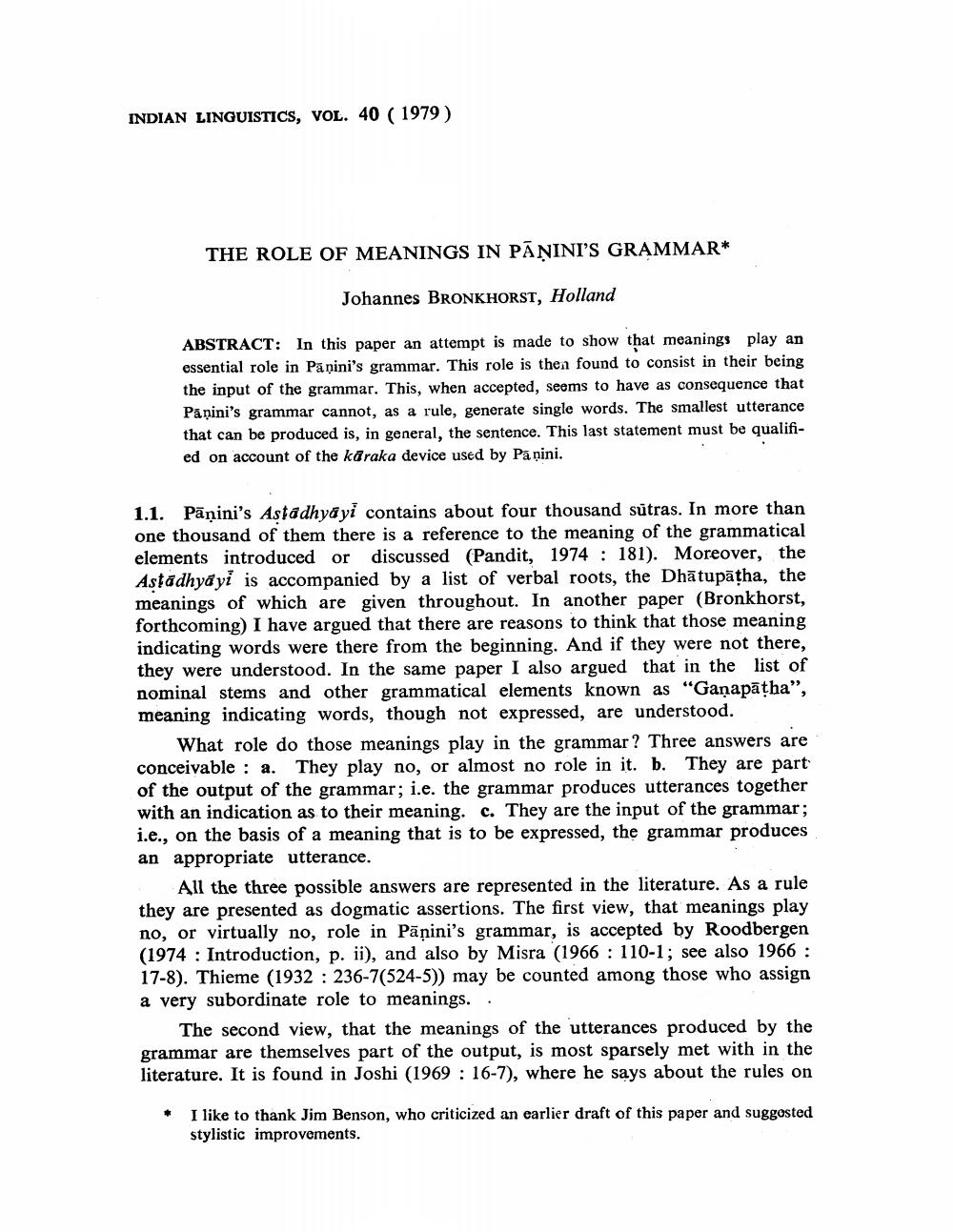Book Title: Role Of Meanings Uin Paninis Grammar Author(s): Johannes Bronkhorst Publisher: Johannes Bronkhorst View full book textPage 1
________________ INDIAN LINGUISTICS, VOL. 40 (1979) THE ROLE OF MEANINGS IN PĀNINI'S GRAMMAR* Johannes BRONKHORST, Holland ABSTRACT: In this paper an attempt is made to show that meanings play an essential role in Panini's grammar. This role is then found to consist in their being the input of the grammar. This, when accepted, seems to have as consequence that Pāņini's grammar cannot, as a rule, generate single words. The smallest utterance that can be produced is, in general, the sentence. This last statement must be qualified on account of the karaka device used by Pa nini. 1.1. Pāṇini's Astadhyayi contains about four thousand sutras. In more than one thousand of them there is a reference to the meaning of the grammatical elements introduced or discussed (Pandit, 1974 : 181). Moreover, the Astadhyayi is accompanied by a list of verbal roots, the Dhātupāțha, the meanings of which are given throughout. In another paper (Bronkhorst, forthcoming) I have argued that there are reasons to think that those meaning indicating words were there from the beginning. And if they were not there, they were understood. In the same paper I also argued that in the list of nominal stems and other grammatical elements known as "Ganapātha", meaning indicating words, though not expressed, are understood. What role do those meanings play in the grammar? Three answers are conceivable : a. They play no, or almost no role in it. b. They are part of the output of the grammar; i.e. the grammar produces utterances together with an indication as to their meaning. c. They are the input of the grammar; i.e., on the basis of a meaning that is to be expressed, the grammar produces an appropriate utterance. All the three possible answers are represented in the literature. As a rule they are presented as dogmatic assertions. The first view, that meanings play no, or virtually no, role in Pāṇini's grammar, is accepted by Roodbergen (1974 : Introduction, p. ii), and also by Misra (1966 : 110-1; see also 1966 : 17-8). Thieme (1932 : 236-7(524-5)) may be counted among those who assign a very subordinate role to meanings.. The second view, that the meanings of the utterances produced by the grammar are themselves part of the output, is most sparsely met with in the literature. It is found in Joshi (1969 : 16-7), where he says about the rules on I like to thank Jim Benson, who criticized an earlier draft of this paper and suggested stylistic improvements.Page Navigation
1 2 3 4 5 6 7 8 9 10 11 12
